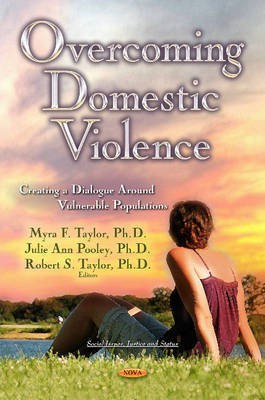Overcoming Domestic Violence(English, Hardcover, unknown)
Quick Overview
Product Price Comparison
This book presents a range of interesting and diverse papers in order to demonstrate the importance and need for intervention programs that deal with the harmful effects that domestic violence causes to primary and secondary victims as well as to perpetrators. These papers reveal that the traditional within family home male-upon-female definitional understanding of domestic violence in the modern needs era to be broadened to include such experiences as dating violence, LGBT intimate partner violence and the childhood witnessing of domestic violence, to name but a few. Additionally, it is argued that intervention programs, given the scale of the domestic violence problem within society, need to be delivered in a non-gendered and non-stigmatising manner to both the survivor and the perpetrator. For, regardless of the gender of the perpetrator, it is the act itself of committing violence that needs to be eradicated. Moreover, it is argued that this eradication will best be achieved through eliminating the destructive construct of blame which is embedded within society's understanding of domestic violence. The need to eliminate the harms blame is evident in the debilitating intergenerational transfer of the abused-abuser perpetrator label. For embedded in this label is the suggestion that a cycle of violence exists in which maltreated children (ie: children who have experienced or witnessed abuse) are destined to grow up to be abusive perpetrators of domestic violence and/or child abuse. The editors contend that the way forward lies in changing this embedded notion and in altering the public's indifference or acceptance of domestic violence, educating the upcoming generation of youth on the unacceptability of fiduciary relationship violence and in creating resilient futures for both the primary and secondary survivors of domestic violence as well as for perpetrators. The chapters are based on recent research conducted in different countries by researchers from multiple disciplines (eg: medicine, social work, psychology, law, nursing, sexology, health sciences, education) situated in universities around the world (eg: Australia, Canada, England, Lebanon, Scotland, Spain and the USA). The book is comprised of seven separate sections that aim to provide diverse perspectives on the issue of domestic violence.


